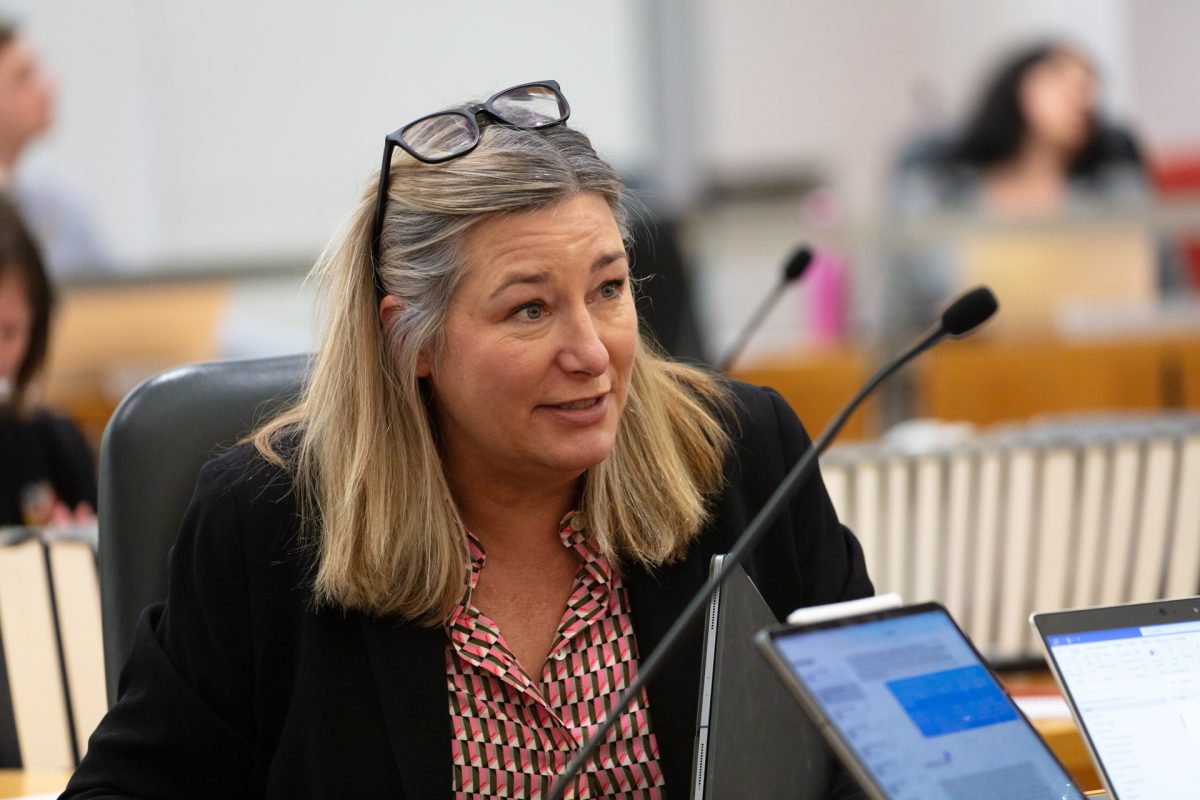
Housing Minister Yvette Berry has admitted admits the removals program was a flawed process. Photo: Thomas Lucraft.
The ACT Government will face a class action from public housing tenants over the botched plan to forcibly remove them from their homes as part of the housing renewal program.
Ken Cush and Associates will file the class action on behalf of about 300 ACT public housing tenants with the Federal Court in the coming weeks.
The class action comes after a public apology and admission from the government that it got the removal process wrong and a damning report from Ombudsman Iain Anderson.
Housing Minister Yvette Berry said the implementation of the flawed removal program, while well-intentioned, was very disappointing.
But the government has restarted the mandatory removal program designed to free up land and capital for new public housing, taking on board Mr Anderson’s recommendations and writing to tenants anew.
Principal Solicitor Sam Tierney said the class action was being brought by lead applicant Gai Higginson and would claim compensation arising from a breach of the residential tenancy agreement.
He said about half of the 300 had already been forcibly moved and the remainder had received the letter telling them they were about to be moved on.
“It’s really a deficient government process that’s completely gone askew which has caused this problem,” Mr Tierney said.
He said it was too early to put a precise number on the amount of compensation that might be due given the range of circumstances.
“Everyone has been affected differently, so bearing in mind some people have moved and some people have just been through the shock and distress of receiving a letter they shouldn’t have got, I think it’s going to be a pretty big range of impacts,” he said.
“There are obviously people who have been forcibly moved out of their houses, in a lot of occasions people who had been there a long time.
“We are aware that some of these tenants had in fact been told at different points that they would be there for life.
“So it’ll be a matter of the court looking at compensation for their loss, in the sense if they’re unhappy in their new residence, if they’ve lost the connection with the community and family that they’d established.”
Mr Tierney said the removal program was something very unfortunate that should never have happened.
He said these sorts of arbitrary government actions, including Robodebt, were becoming a problem in that they had a well-meaning intention but then lost sight that there were people involved.
The public housing plan did not appear to have been properly thought through.
“It was more about the announceables before they looked at the substance or how to do it carefully and properly, and seemed to be a mandate to do it in a rush presumably to take advantage of the current housing market,” Mr Tierney said.
“This is what happens when you rush.”
The Ombudsman found that Housing ACT underestimated the impact on tenants and that its communication with them was impersonal and caused significant distress.
“While clearly well-intentioned and based on legitimate public policy goals, Housing ACT did not plan adequately for implementation of the program,” the report said.
Housing ACT is now seeking more information from tenants about their individual circumstances as part of a more proactive exemptions policy, as well as fixing the communications issues the Ombudsman highlighted and providing more support for Tenant Relocation Officers.




















